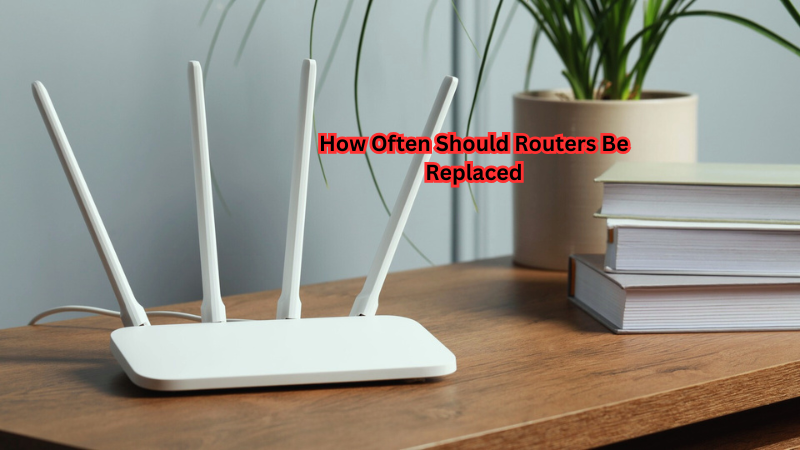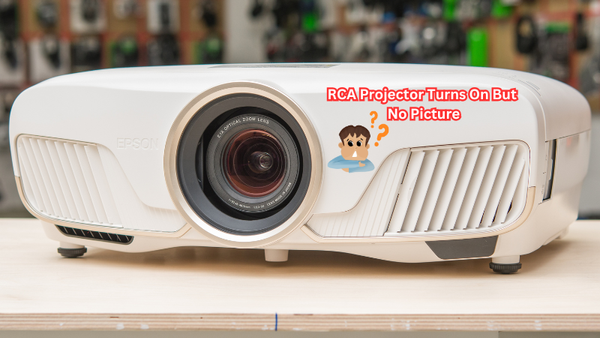Routers play a vital role in our daily lives, providing us with internet access and enabling communication between devices. However, like any other electronic device, routers also have a limited lifespan and need to be replaced at some point.
But how often should routers be replaced? This is a common question among many router users. The answer depends on various factors such as the quality of the router, usage patterns, and technological advancements.
In this article, we will discuss the factors that determine when routers should be replaced and provide some tips for maintaining your router's longevity. So let's dive in and find out how often you should replace your router!
Why Do Routers Need To Be Replaced?
Over time, routers undergo wear and tear, which can lead to decreased performance and connectivity issues. As technology advances, newer routers are equipped with enhanced features and capabilities that older models lack, such as improved network security, faster data handling, and support for more devices.
The growing number of connected devices in homes can also strain outdated routers, leading to slower speeds and frequent disconnects. Additionally, manufacturers may stop providing firmware updates for older models, which can leave them vulnerable to security breaches.
Environmental factors, such as extreme temperatures and dust accumulation, can further deteriorate a router's performance. Wireless standards evolve over time, and older routers may not support the latest standards like Wi-Fi 6, which offers better efficiency and coverage.
These reasons collectively contribute to the need for periodic router replacement to ensure optimal internet performance and security.
Factors That Determine When Routers Should Be Replaced
As mentioned earlier, several factors affect the lifespan of a router and determine when it needs to be replaced. Here are some essential factors to consider:
Age of the Router
The age of a router plays a significant role in determining its performance and utility. Generally, routers are designed to last between three to five years. However, rapid technological advancements may render a router obsolete even before this period.
Older routers might lack compatibility with newer devices and have slower processing speeds. Over time, the hardware also wears out, potentially leading to connectivity issues and functional failures. Assessing your router's age helps ensure you're using technology that delivers optimal speed, security, and reliability for all connected devices.
Technological Advancements
Technological advancements rapidly evolve, bringing forth more powerful and efficient routers.
Newer models often offer improved performance features such as advanced beamforming, higher frequency bands, and enhanced security protocols to safeguard data transmission. These devices are better equipped to handle the increasing number of smart devices in modern homes.
As wireless standards like Wi-Fi 6 continue to emerge, older routers may not support them, leading to suboptimal performance. Keeping pace with technological advancements ensures that your home network remains robust and capable of accommodating emerging tech needs.
Usage Patterns
The way you use your router significantly impacts its lifespan and the timing for a potential upgrade.
Heavy internet users who stream high-definition videos, engage in online gaming, or operate smart home devices typically exert more strain on their routers. Consistent high usage can exploit the hardware's limitations faster, necessitating a quicker replacement.
Conversely, light users may find that their routers remain serviceable longer. Regularly evaluating your internet use can help determine if your current router meets your needs or if an upgrade could enhance your network efficiency.
Environmental Factors
Environmental conditions can affect a router's lifespan and performance, necessitating timely replacement.
Exposure to excessive heat or cold can damage sensitive electronic components, while dust and moisture can lead to internal corrosion and signal interference. Physical placement matters too; routers hidden behind furniture or nestled in isolated corners may experience overheating due to insufficient airflow.
To optimize performance and prolong life, keep routers in a well-ventilated area, away from direct sunlight, and regularly clean them to prevent dust buildup that could degrade functionality over time.
Number of Connected Devices
The number of devices connected to a network can greatly influence when a router should be replaced. As more devices are connected—such as laptops, smartphones, tablets, smart TVs, and home automation systems—the demand on the router increases.
Overloading an outdated router can lead to slow internet speeds and consistent dropouts, frustrating users. Upgrading to a newer model, especially one designed for high device throughput, can alleviate these issues, supporting simultaneous connections while maintaining consistent, high-speed internet throughout the home.
Firmware Updates
Firmware updates are crucial for a router's security and performance longevity. Manufacturers often release updates to patch vulnerabilities, improve features, and support new wireless standards. However, older routers might stop receiving these updates as they become obsolete.
Without updates, routers are susceptible to hacking and may not function effectively with newer devices. Regularly checking for and installing firmware updates can extend a router's useful life, but if updates are no longer available or stop coming, it may be time to consider upgrading to a newer, supported model.
Signs That It's Time to Replace Your Router
Aside from considering the factors mentioned above, there are some clear signs that can indicate it's time to replace your router. Some of these include:
- Frequent internet outages or slowdowns despite troubleshooting efforts.
- Difficulty connecting new devices due to compatibility issues.
- Persistent security breaches, even after firmware updates.
- Physical damage or visible wear and tear on the router.
If you experience any of these issues, it may be worth considering a replacement for your router to ensure optimal performance and security for your home network.
Average Lifespan of Different Types of Routers
The average lifespan of routers varies depending on their type and usage. Consumer-grade routers, commonly used in homes, typically have a lifespan of 3 to 5 years, assuming regular updates and optimal conditions.
Their hardware may struggle with newer standards and increased device load, warranting replacement sooner if performance dips. Business-grade routers, on the other hand, are designed for more extensive use and durability, lasting 5 to 7 years.
They often receive better support for firmware updates and are built with higher-grade components. Mesh routers, used increasingly in residential settings for extensive coverage, also fall into the 3 to 5-year range.
However, due to their modular nature, individual nodes can sometimes be replaced for extended network longevity. Ultimately, keeping up with technological advancements is crucial for any router's continued reliability and efficiency.
How To Choose The New Router
When it's time to upgrade your router, it's essential to consider factors like internet speed, coverage needs, and budget. Here are some key features to look for when selecting a new router:
- Wireless standard: Look for routers that support the latest wireless standards (e.g., Wi-Fi 6), as they offer faster speeds and improved connectivity. Plus, they future-proof your network for years to come.
- Number of bands: Dual-band and tri-band routers offer better performance and speed by splitting devices across different frequency bands. For heavy internet users, a tri-band router may be necessary to reduce congestion and maximize speeds.
- Range and coverage: Consider the size of your home and its layout when choosing a router with the appropriate range and coverage capabilities. Mesh routers, which use multiple nodes to extend coverage, are ideal for large homes or spaces with signal dead zones.
- Security features: Look for routers with advanced security protocols like WPA3 encryption to keep your network safe from potential threats. Additionally, some routers offer parental controls and guest network options for added security and control.
- Budget: Routers come in a range of prices, so it's essential to set a budget and stick to it. Consider the features you need and prioritize accordingly. It may be worth investing in a higher-priced router for long-term performance and reliability.
FAQs
Is it necessary to upgrade my router regularly?
While it's not necessary to upgrade your router every year, keeping up with technological advancements and regular firmware updates is crucial for optimal performance and security.
How can I tell if my router needs to be replaced?
Slow internet speeds, frequent outages, and difficulty connecting new devices are some signs that may indicate it's time to replace your router.
Can I extend the lifespan of my current router?
Yes, you can extend a router's lifespan by keeping it in optimal conditions, regularly updating its firmware, and reducing the number of connected devices if possible.
What type of router should I choose for gaming or streaming?
For gaming or streaming purposes, choose a router with a high-speed internet connection and advanced features like Quality of Service (QoS) to prioritize gaming or streaming traffic for smoother performance. It may also be beneficial to use a wired connection instead of wireless for the best speed and stability.
Conclusion
In conclusion, routers play a crucial role in our daily lives, providing us with access to the internet and connecting all of our devices. However, like any technology, they have a limited lifespan and require replacement over time. It's essential to consider environmental factors, the number of connected devices, and firmware updates when determining if it's time to replace your router.
Additionally, keeping up with technological advancements is key for maintaining optimal performance and security. When selecting a new router, be sure to consider features like wireless standard, range and coverage, security protocols, and budget.
With proper care and timely replacements, your router can continue to provide reliable internet connectivity for years to come. So don't wait until it's too late, keep an eye on your router and be ready to make the necessary upgrades when needed. Happy browsing!







